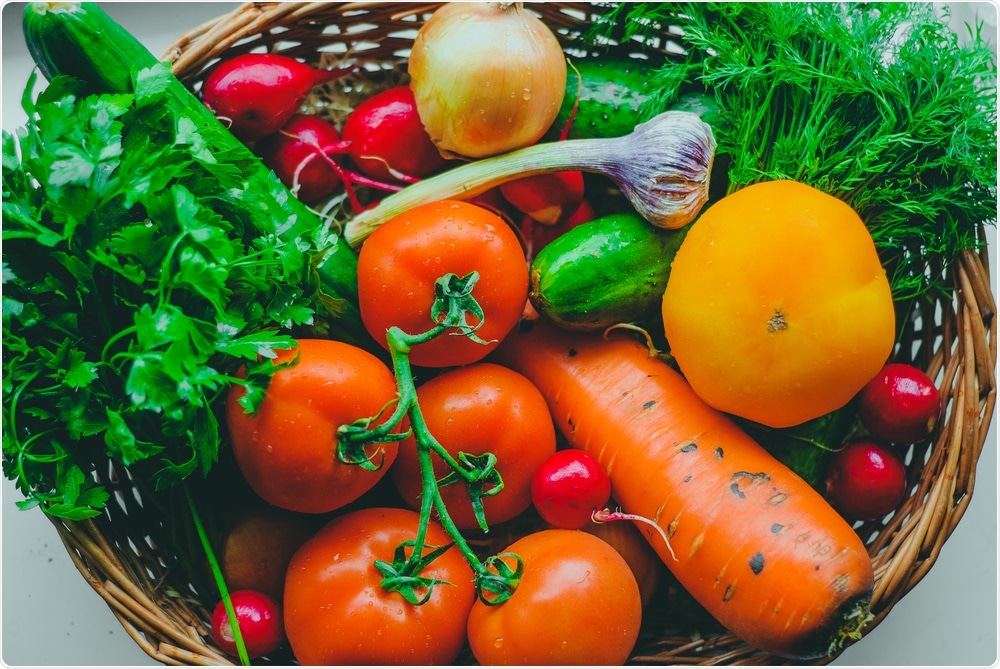People may follow a vegan diet for various different reasons, ranging from wanting to lose weight, trying to reduce environmental footprint through to helping to address concerns about animal welfare.
Switching from a typical Western diet to a vegan diet will inevitably mean having to replace the nutrients supplied by meat and animal products with nutrients from foods such as fruits, vegetables, beans, nuts and seeds. The increased intake of such foods can mean vegans have a higher daily intake of certain nutrients that are highly beneficial to health.
For example, a number of studies have demonstrated that vegan diets tend to include more fiber, antioxidants, potassium, folate and vitamins A, C and E, compared with Western diets. Vegan diets can even help people maintain a healthy heart and reduce the risk of type 2 diabetes and certain cancers developing.
However, following a poorly planned vegan diet can result in an insufficient intake of certain vitamins and minerals including vitamin B12, calcium, iodine and iron.
 spongePo | Shutterstock
spongePo | Shutterstock
It is therefore essential that vegans avoid fast-food vegan diets that are lacking in nutrients and follow whole-food diets instead. The following article describes ways in which people can increase the intake of nutrients that are often deficient in a vegan diet.
Vitamin B12
Vitamin B12 is needed to make DNA, red blood cells, certain neurotransmitters and myelin, the protective sheath that insulates nerves. A diet deficient in vitamin B12 can cause fatigue, lethargy, light-headedness, heart palpitations, weight loss and a host of other health complications.
Some symptoms relating to the nervous system (referred to as vitamin B12 neuropathy), include problems with movement and sensation, memory loss, mood changes, confusion, forgetfulness, depression and visual disturbances.
Vitamin B12 is abundant in meat, milk and dairy products, but vegans can ensure they keep up sufficient B12 intake by eating plant sources of the nutrient. The vitamin can be found in algae and plants that have been exposed to bacterial activity and traces can be found in certain types of mushrooms, fermented soy beans, nut milks and meat substitutes.
Adding the crystalline form of vitamin B12 (the easiest type to absorb) to a person’s diet can increase uptake of the vitamin to a level comparable to that of meat-eaters.
Calcium
Calcium is essential for bone growth and maintenance and heart, muscle and nerve function. A diet deficient in calcium increases the risk for osteoporosis, bone fracture and heart failure.
Calcium requirements can be increased for vegans since foods such as beans and spinach are relatively rich in oxalic acid and food such as nuts, seeds, grains and soy products are rich in phytic acids. These two acids can cut calcium absorption by as much as 50%.
One study showed that vegans had a lower calcium intake compared with vegetarians, pesco-vegetarians, and omnivores. Sources of calcium that vegans can rely on include tofu made with calcium sulfate, certain fortified soy or nut milks, legumes and cereals.
Iodine
Iodine, which is concentrated in the thyroid, is is essential for the production of the hormone thyroxine, which is needed for healthy growth, development of the central nervous system and metabolic regulation.
Iodine deficiency can cause an enlarged thyroid gland, hypothyroidism or a goitre. For women, it can also increase the risk of miscarriage, stillbirth and congenital abnormalities.
The main sources of iodine are usually eggs, dairy and seafood, but for vegans, the iodine content of their diet depends on the iodine content in plants… and that depends on how much iodine is present in the soil the plants are grown in.
When plants grown in soil lacking iodine are eaten, an iodine supplement may need to be taken. Iodised salt, seaweed, and fortified soy or nut milks are other important sources of iodine.
Iron
Iron is required to produce hemoglobin in red blood cells, to provide the energy needed for muscle function and to maintain a healthy immune system. A diet that is deficient in iron can lead to iron deficiency, which is associated with compromised immunity, impaired cognitive function and developmental delays in children.
In a typical Western diet, the main sources of iron are meats, fish and wholegrain cereals. The degree to which a person absorbs iron from food depends on their iron status, the iron content of meals and whether the source of iron is heme iron from animals or non-heme iron from plant-based foods.
Iron from plant sources such as grains and vegetables is less easily absorbed, but adding citric acid or other vitamin C-rich foods converts non-heme iron into a form that is more easily absorbed.
Are vegan diets healthier?
Qi Sun, assistant professor of nutrition at Harvard T.H. Chan School of Public Health warns that while people often automatically regard vegan diets as healthy, that is not necessarily always the case.
"If you eat a vegan diet, but eat a lot of french fries, refined carbs like white bread, white rice," he says, that is not healthy. Aside from avoiding such foods, he suggests ensuring that fruits, vegetables and nuts make up a large proportion of the diet.
For people who do not want to eliminate meat completely from their diet, Sun points out that eating healthy plant foods can still provide benefits such as protecting heart health and preventing the development of type 2 diabetes.